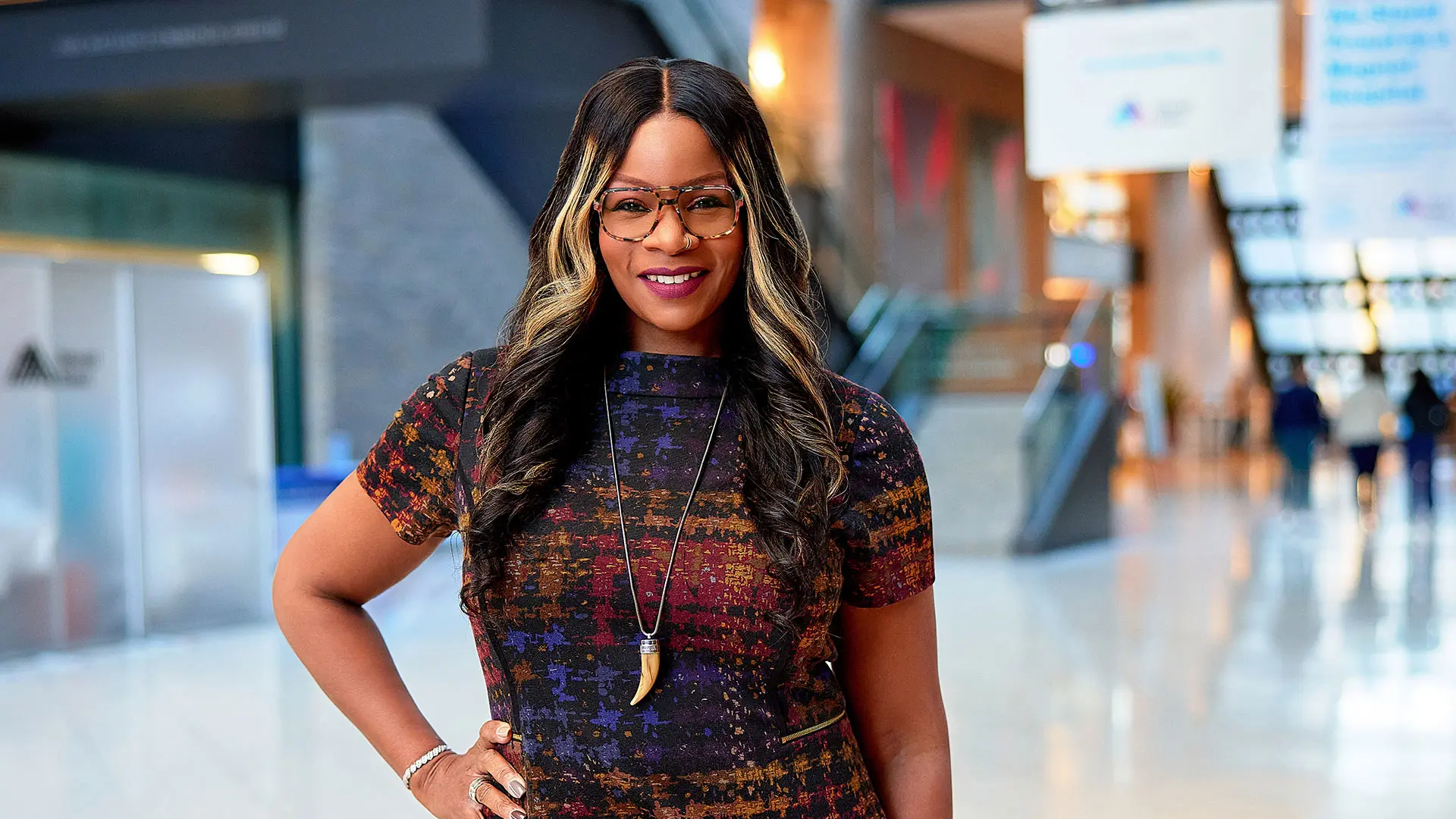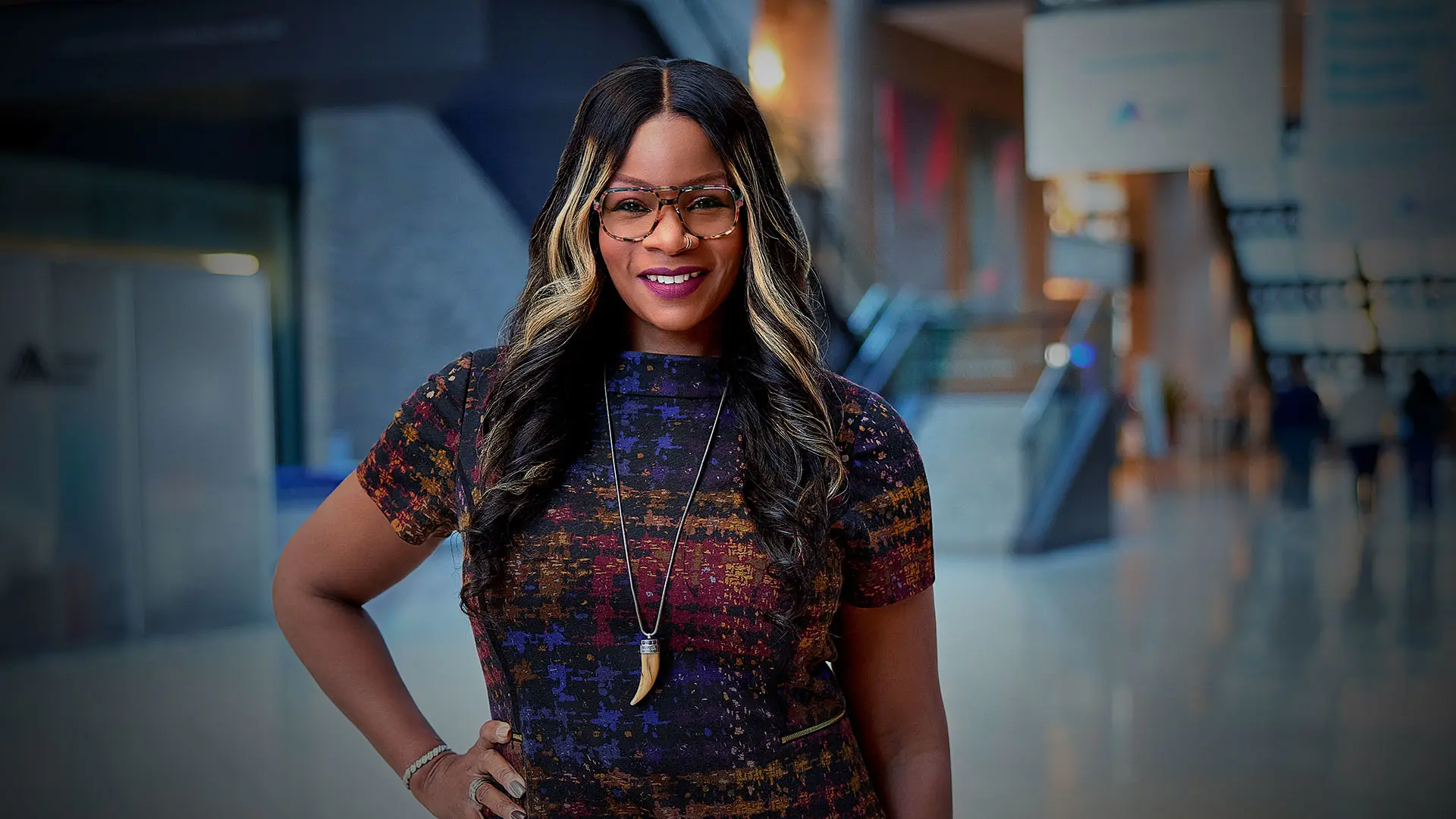At a time when some may be questioning the value of DEI (Diversity, Equity, and Inclusion), the Brookdale Department of Geriatrics and Palliative Medicine is seeking to broaden its own program, completing a series of workshops for employees that underscores the importance of cross-cultural competencies and communications in the field of health care. By building a strong business case for DEI, the daylong training sessions are designed to engage participants in the tough, and at times uncomfortable, conversations around racism, gender, social privilege, and health disparities that can improve their awareness and performance in both hospital and community settings.
“Workshops such as ours are more important than ever in our society where DEI is itself being villainized,” says Tremayne Cunningham, MS, Vice Chair of Administration and Finance for the Brookdale Department, who created and leads each workshop in her added role as Vice Chair of DEI. “Our program explores where these prejudices come from, how they’re perpetuated, and how we can educate and empower ourselves to recognize and dismantle them.”
At the core of this effort is a better understanding and knowledge of other cultures, and here Ms. Cunningham uses a mix of historical videos and interactive group discussions and exercises to illustrate how perceptions, biases, and stereotypes are formed. Attendees, including all Department leadership, faculty, and staff, are taught how to assess their own biases, how to recognize them in others, and how to increase their comfort level discussing sensitive DEI issues and concerns with their co-workers or other constituent groups.

Tremayne Cunningham, MS, Vice Chair of Administration and Finance for the Brookdale Department
“I make it quite clear that my goal is not to change their minds or to support or knock down their different points of view,” the DEI leader emphasizes. “I want to broaden whatever lens they see the world through and utilize to evaluate the people and work environment around them.”
As a 28-year veteran of the Mount Sinai Health System, Ms. Cunningham is eminently qualified to spearhead the diversity and inclusion initiative for the Brookdale Department, which she joined in 2019 to direct its administrative and financial operations. She sharpened her leadership skills in the DEI realm by receiving certification as a diversity professional in 2023 from one of the country’s top training programs at Cornell University. The project she chose to complete her coursework was development and delivery of a workshop she titled, “Diversity, Equity, and Inclusion 101.”
“If we were going to hold people accountable for achieving certain DEI benchmarks, I realized it was important to level-set everyone’s understanding and education around basic terms and concepts,” she explains. “The Diversity, Equity, and Inclusion 101 Workshop” is designed to ensure that all of us are speaking the same language and that we understand terms such as microaggression, intersectionality, and unconscious bias that are germane to our work.”
One section of the course covers the importance of having a diverse workforce with multicultural skills to support a diverse demographic of clients. As an example, the instructor posits the notion that assumptions, and even diagnoses, are at times made about patients based on the very limited cultural lens of the health care provider. This could, in turn, blind that individual to the fact a patient may not be eating, or refuse a certain type of treatment, not due to illness, but to their cultural beliefs and upbringing.
“When we have a greater level of cross-cultural awareness and knowledge—which this course sets out to achieve—we’re able to make more informed decisions and become stronger advocates for our patients,” Ms. Cunningham explains. “I like to tell my audience that on the other side of their greatest fear is their greatest triumph, and that leaning into the uncomfortable space of DEI is actually empowering for them.”
The Brookdale Department is not relying on workshops alone to build an enriched platform for diversity and inclusion. It has been expanding its roster of on- and off-site activities that invite employees to step into and sample other cultures through mainstays such as food and dance. Witness a salsa night in honor of Hispanic Heritage Month, complete with a salsa instructor and authentic food. Or the outing to Chinatown where a Mount Sinai physician led of group of about 30 colleagues to local restaurants and bakeries, spicing the visit with cultural insights and commentary.
As for the feedback by participants to the widening range of diversity opportunities, Ms. Cunningham says she is greatly encouraged. “It’s almost cathartic for many of them to have this safe space to voice their frustrations or share stories about discrimination they may have faced themselves as BIPOC, immigrants, or members of the LGBTQ+ community,” she observes. “Many come away from the experience having made new friends and connections based on commonalities they weren’t even aware of before.”
